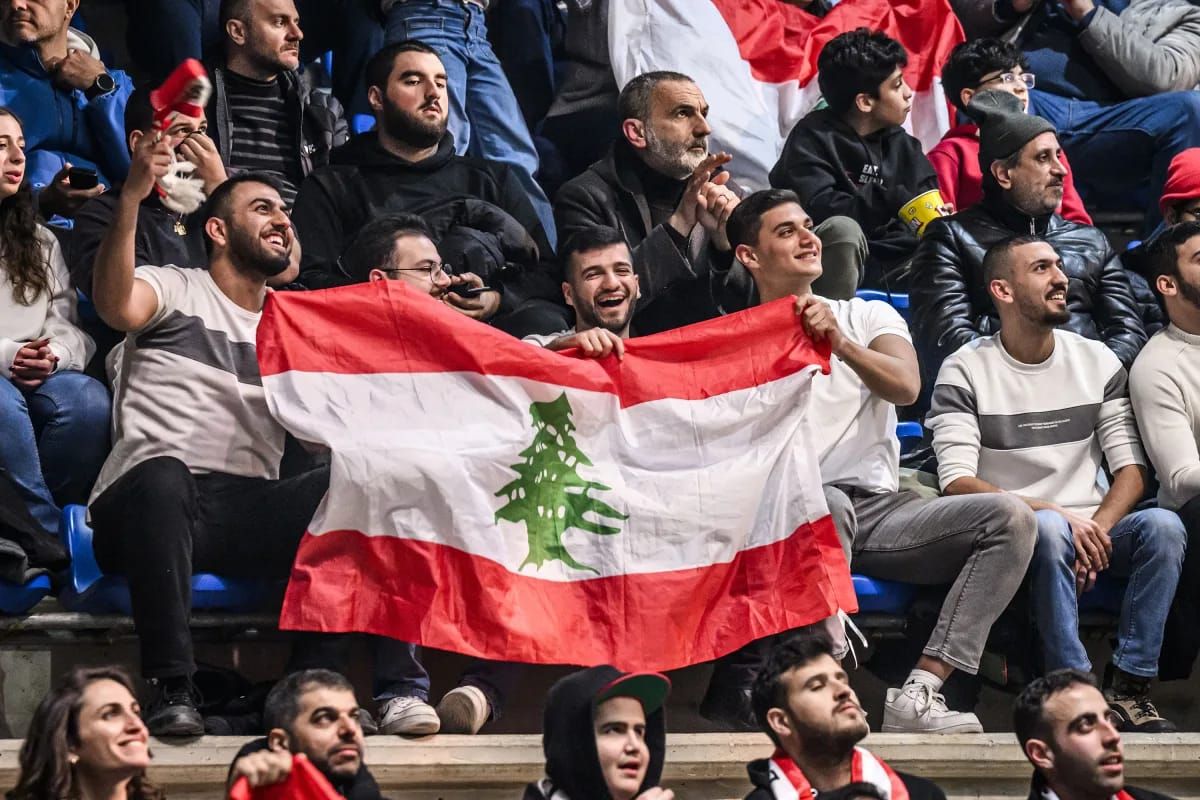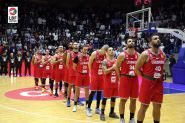
Lebanon begins its Asian qualifiers for the 2027 Basketball World Cup with a home-and-away clash against Qatar. A new era starts on the sidelines with coach Ahmad Farran, but the ambition remains the same: build on the momentum of a team that dominated the first phase of the 2025 qualifiers with a flawless 6–0 record, and position itself strongly in Group D from day one.
First comes Doha (27 November, Lusail Multipurpose Hall), then Zouk Mikaël (30 November, Nouhad/Nohad Nawfal Sports Complex). Two closely scheduled matchups that will quickly show where Lebanon stands at the start of this new campaign. Qatar, the 2027 host nation, is not fighting for qualification but for credibility. For Lebanon, every result matters, as the points carry over to the next round. This November double-header will serve as a benchmark before facing Saudi Arabia and India.
Farran sets the tone
Ahmad Farran released an extended list of 21 players for training camp, an intentional blend of experience and youth. The objective is clear: raise training intensity, create real competition at each position, and make sharp selections when finalizing the roster. The list features veterans such as Wael Arakji, Amir Saoud, Ali Haidar, Gerard Hadidian and Ali Mansour; rising talents like Youssef Khayat and Jihad El-Khatib; and naturalized player Dedric Lawson to strengthen the paint and add pick-and-pop options. This fall’s challenge is to build quick chemistry around a structured backcourt and an interior line capable of controlling the boards.
Qatar 2027 in sight
On the other side, Qatar has shifted gears under coach Hakan Demir, adopting a clear strategy: build a young, consistent and competitive squad with 2027 as the long-term horizon. The Qataris have shown signs of improvement and won’t settle for being mere hosts. At home, physical intensity and pace control will be central to their game plan, with the aim of stretching Lebanon’s rotations and capitalizing on any dip in focus.
Lessons from the 6–0 run
Lebanon enters the qualifiers after a perfect campaign in the 2025 Asia Cup qualifiers, finishing with six wins in six games. That run highlighted the team’s strong character in clutch moments, the efficiency of the Arakji–Saoud duo in dictating tempo, and the ability of the frontcourt to hold steady under pressure. The challenge now is to carry this confidence into the World Cup qualifiers, where every possession matters and the management of each window shapes the path forward.
Key factors — no room for error
Controlling the rhythm will be the first pillar. In Doha, Lebanon must calm the local adrenaline, execute clean half-court sequences, and alternate between drives and perimeter shooting. Defensive rebounding will be crucial, providing no second-chance opportunities. Lastly, depth: Farran must establish, from this opening window, eight to nine reliable rotation players to maintain freshness heading into the return match in Zouk Mikaël.
Extended roster of 21 players called up to camp:
Wael Arakji, Amir Saoud, Ali Mezher, Omar Jamaleddine, Ali Mansour, Jad Khalil, Sergio El Darwich, Karim Zeinoun, Joe Bou Samra, Mark Khoueiry, Karim Rtail, Youssef Khayat, Jihad El-Khatib, Anthony Naba, Marc Khoury, Karl Zamatta, Karim Ezzeddine, Ali Haidar, Gerard Hadidian, Omar El-Jamal, and Dedric Lawson.
Objective: start the engine
Two games to earn points, confidence, and chemistry. The message is familiar but still essential: start the campaign strong, validate the rotations, secure at least one win out of two and, if the opportunity arises, aim for both. With a group that has shown it can win under pressure and a staff eager to build momentum quickly, Lebanon has all the tools to leave its mark from November.




Comments